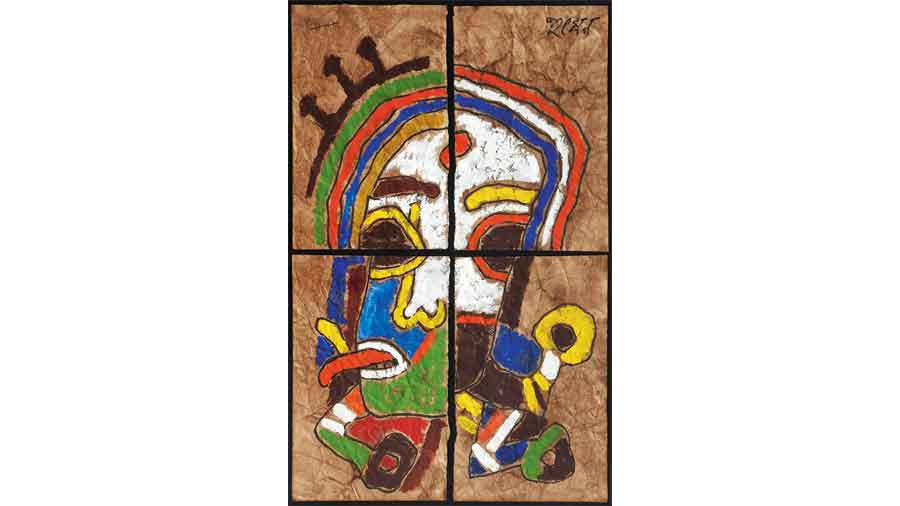When a show boasts of a line-up as stellar as the one of Masterpieces 2021 — from Abanindranath Tagore, Nandalal Bose, Jamini Roy and Ramkinkar Baij to K.H. Ara, M.F. Husain, Indra Dugar, Somnath Hore, S.H. Raza, Ramkumar, Satish Gujral, Rabin Mondal, Sohan Qadri, Ganesh Haloi, and Manu Parekh were all featured — there is little that can be said about it that is not already in the public domain. But as important as the artists being featured is why they have been selected. The curatorial note says that the aim of the show is to question a “debased modernism” that is retreating into “deviance and dissonance”.
The query that arises here is this: are deviance and dissonance necessarily bad when it comes to artistic traditions? This question becomes even more pertinent if one takes a look at the careers of a majority of the ‘Masters’ who are part of the show. They pioneered modernism in Indian art, striking out from set practices and crafting a unique idiom. Husain’s Rangeen Kali (picture), Raza’s Bindu-Nad, K. Laxma Goud’s Untitled work and Phul Chand Pyne’s The Owl embody the richness of deviance when it comes to art.
The artworks seem to follow no particular theme — a charming tempera by Abanindranath and Gopal Ghose’s soothing watercolours share space with the chilling Salvationist by Bikash Bhattacharjee. If there is one unifying thread that runs through the show, it is modernism.











